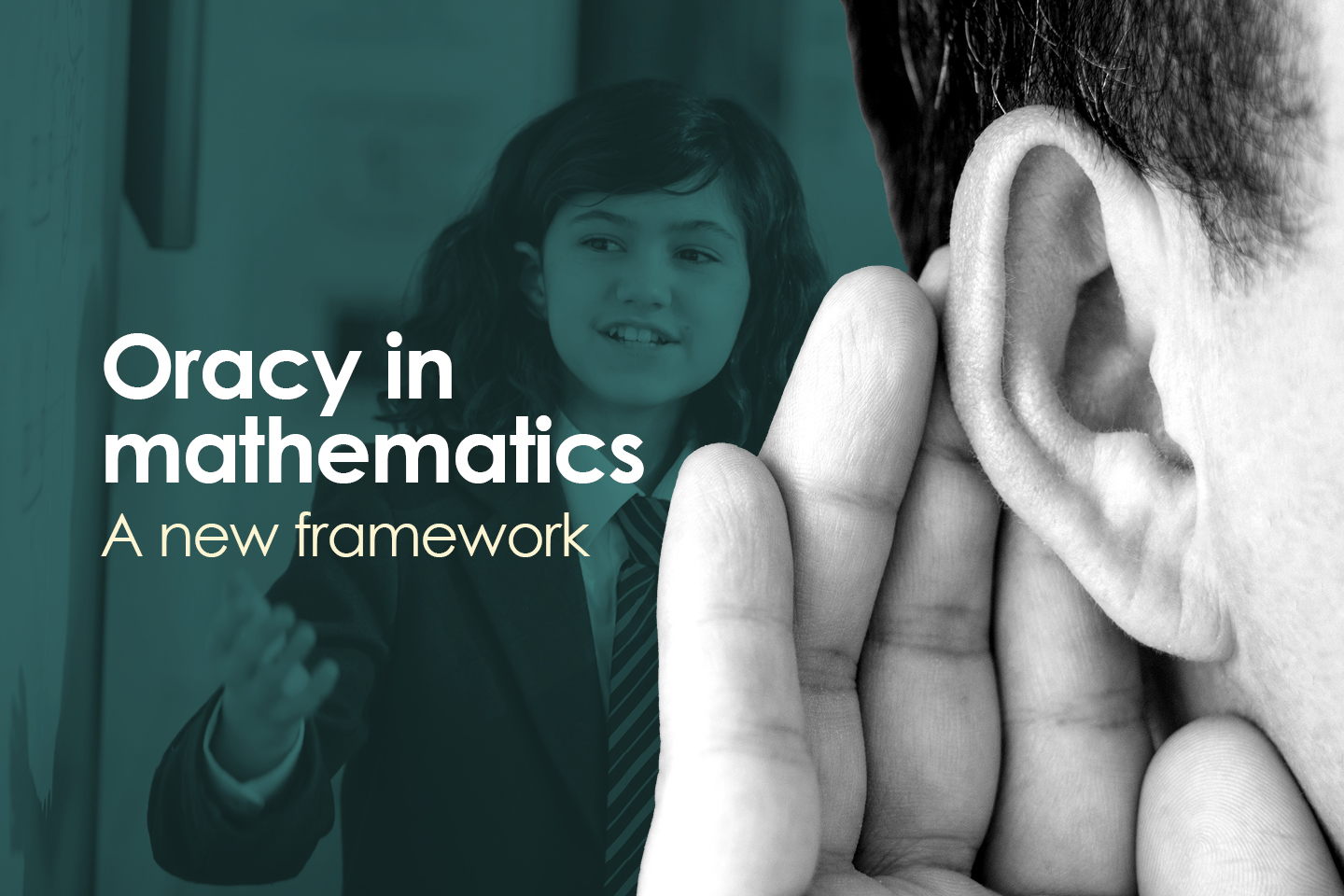Oracy in mathematics – a new framework
Associate Deputy Director for Secondary, Jane Hawkins, shares a new framework for oracy in mathematics which presents the foundational principles of oracy in a teaching for mastery context
19/09/2025

Oracy may be making headlines in education right now, but in mathematics classrooms it has been quietly shaping practice for some time. For over five years, Maths Hubs have been working with teachers to explore the impact of purposeful talk on mathematical understanding and as a powerful tool to tackle disadvantage. The NCETM is now able to share its Oracy in mathematics framework for teachers and schools.
Since 2020, Maths Hubs’ Research and Innovation Work Groups, where classroom practice and professional collaboration come together to test ideas and develop approaches that respond directly to schools’ needs, have focused on disciplinary oracy in mathematics.
Their collective findings have now been brought together in a new framework, Oracy in mathematics, which sets out why talk matters in mathematics classrooms and how teachers can develop a culture where speaking, listening and reasoning are central to learning.
How does oracy relate to maths?
Talking, listening and communicating in maths are central to how pupils think, make sense of ideas and develop a deep understanding of the subject.
Teachers help pupils both to learn to talk by putting their ideas into words, and to learn through talk by using language to uncover patterns and structure. This dual role of talk is at the heart of mathematical learning.
In classrooms where teaching for mastery is well established, oracy is recognised as a vital ingredient. Communication is not simply a classroom routine: it is how pupils reason, question and build connections. Purposeful talk and attentive listening help them test out ideas, refine their thinking and deepen their understanding.
Creating a culture of oracy
Developing an oracy-rich classroom is about more than adopting a few strategies. It is about creating a culture where pupils are encouraged to think, listen and reflect. Teachers can set the tone by valuing every pupil’s contribution and making it clear that everyone’s voice matters. Ground rules for communication are established and, over time, thoughtful talk and genuine listening become part of the classroom’s rhythm.
This kind of culture allows pupils to explain their reasoning, challenge ideas respectfully and develop confidence in using mathematical language. It supports all learners, but it can make the biggest difference for those pupils experiencing disadvantage, who may have fewer opportunities to develop mathematical language and reasoning skills.
Looking ahead, 2025 brings the introduction of a new role to Maths Hubs: Equity Leads. Working with local leaders of maths education (LLMEs), they will focus on developing practices that create more equitable classroom experiences for all pupils. Oracy in mathematics will play a key part in shaping this work, helping ensure every child has the chance to succeed in maths through meaningful talk that deepens their understanding.
Get started
If you would like to explore this further, take a look at the Oracy in mathematics framework. It offers practical guidance and examples to help you build an oracy-rich classroom where mathematical talk supports every pupil’s learning. And don’t forget, fully-funded support to improve mathematics teaching and learning is always available through your local Maths Hub.
